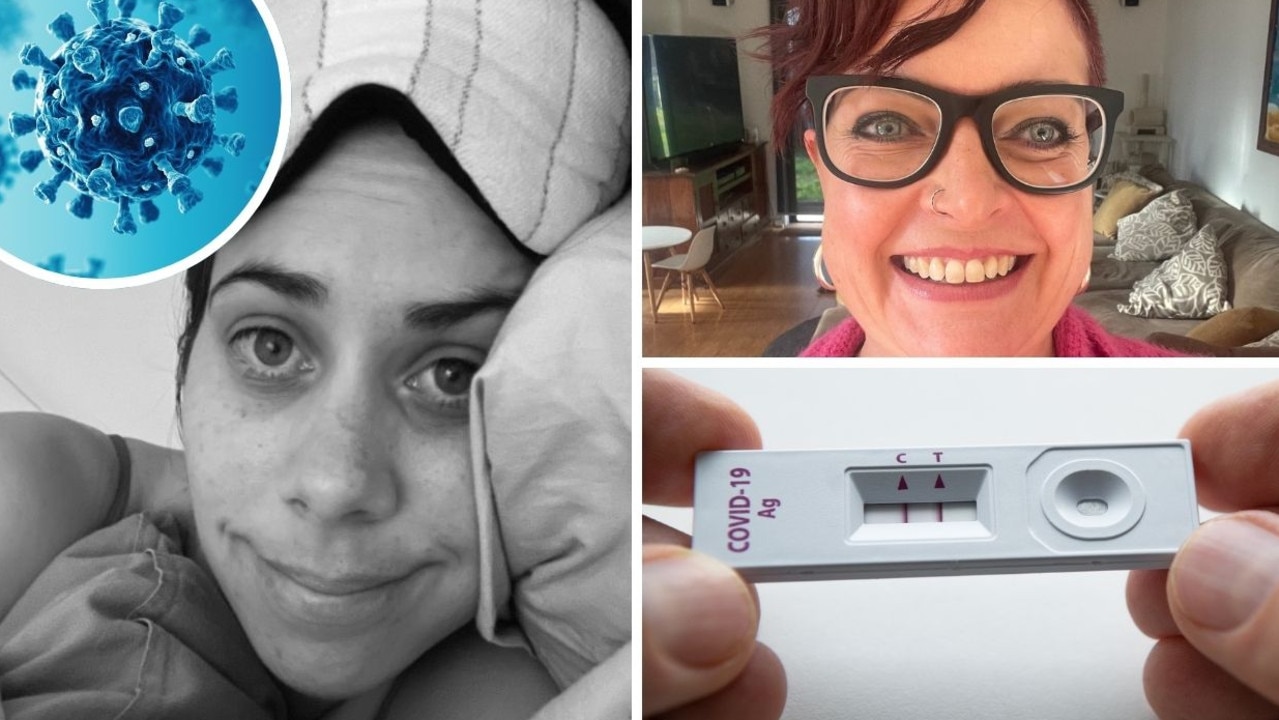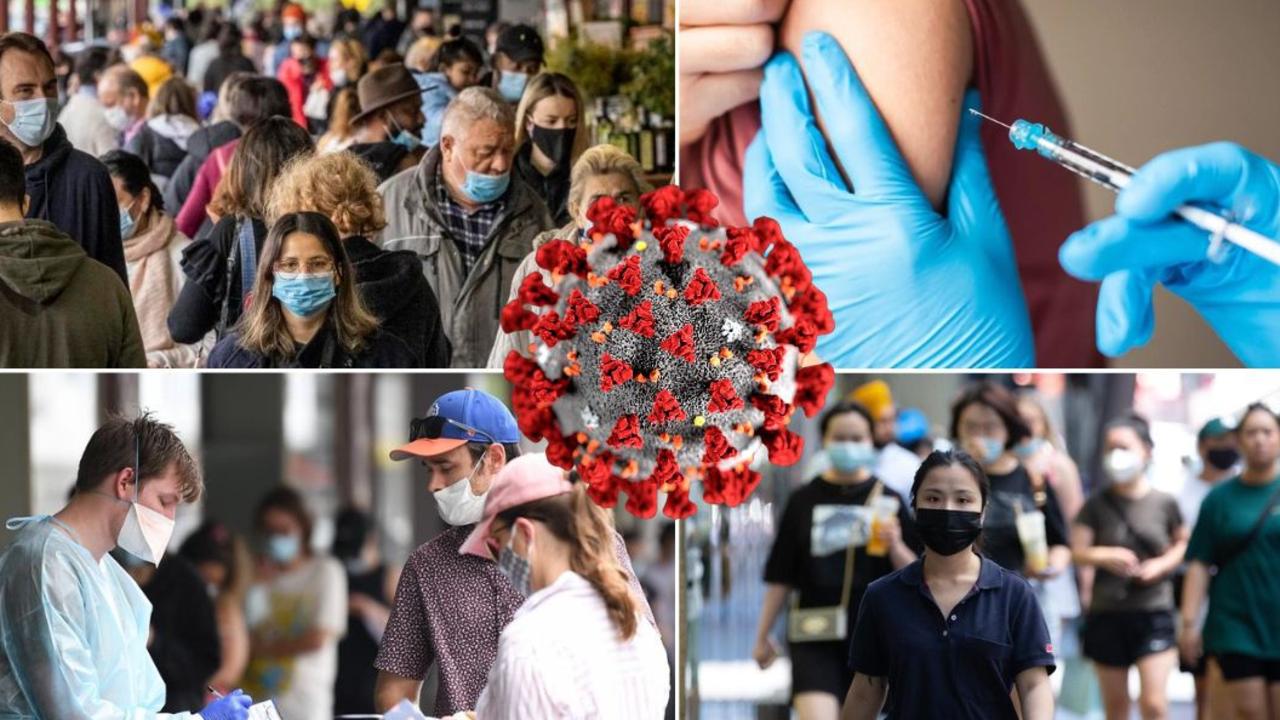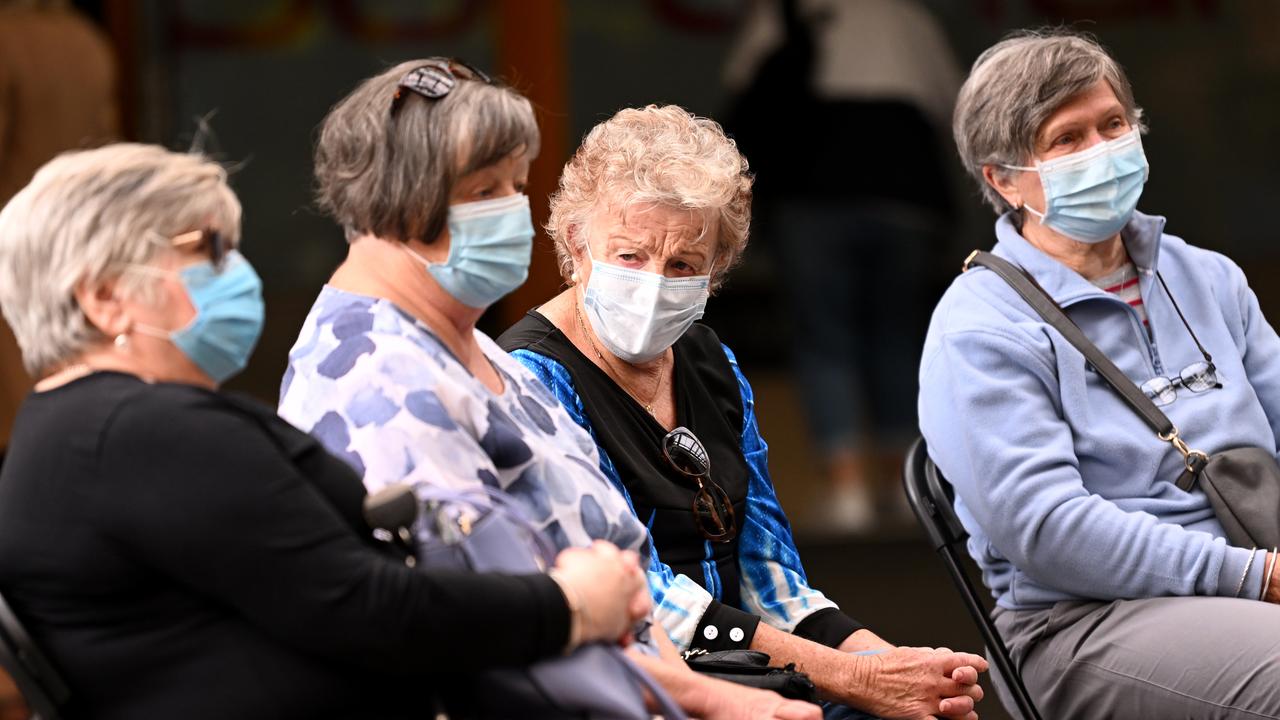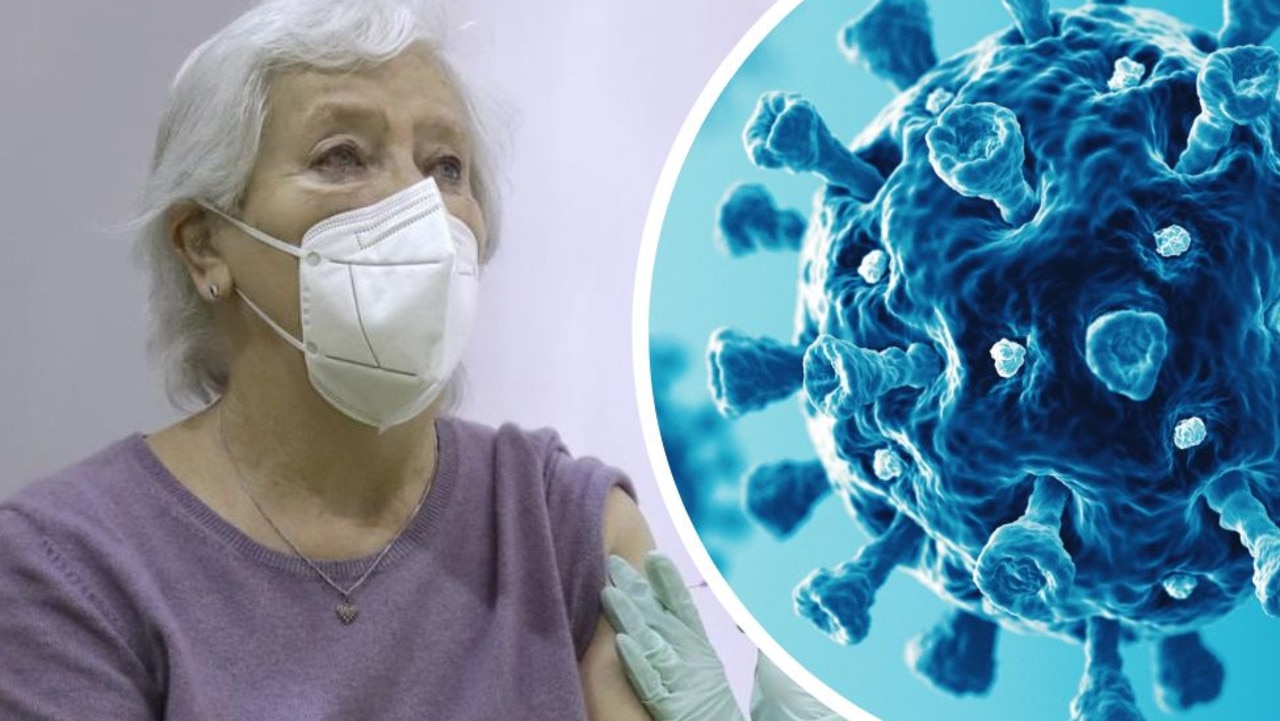Coronavirus world: US approves booster shots for teens amid Omicron fears
The US Food and Drug Administration has approved a third Pfizer jab for teens as concerns grow around the vaccine’s ability to fight Omicron.
Coronavirus
Don't miss out on the headlines from Coronavirus. Followed categories will be added to My News.
The US Food and Drug Administration (FDA) on Thursday local time expanded authorisation of the Pfizer Covid booster to include 16- and 17-year-olds, amid growing concern over the Omicron variant’s ability to overcome immunity conferred by two shots.
The FDA’s decision comes a day after the companies released the results of lab tests that showed three doses appeared effective against Omicron, while two doses were probably not enough to stop infection — though may still prevent severe disease.
Even before Omicron emerged, there had been concerns about waning immunity over time, and the US and many other northern hemisphere countries are experiencing winter waves driven by the currently dominant Delta strain.
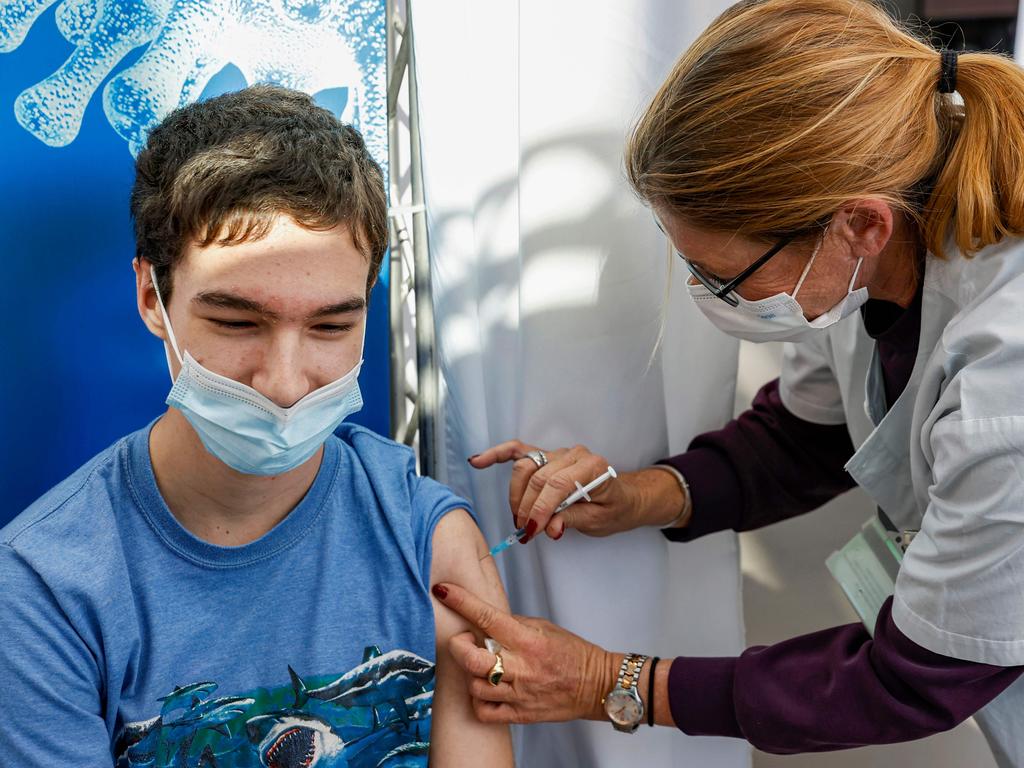
The expanded emergency use authorisation (EUA), which applies six months after the primary vaccination series, is expected to be quickly reviewed and ratified by a second agency, the Centres for Disease Control and Prevention.
“Vaccination and getting a booster when eligible, along with other preventive measures like masking and avoiding large crowds and poorly ventilated spaces, remain our most effective methods for fighting Covid-19,” said acting FDA chief Janet Woodcock.
In a statement, the FDA said the evidence supporting the decision came from previously collected immune response data from people aged 18 and older, which they inferred could be extended to 16-and-17-year-olds.
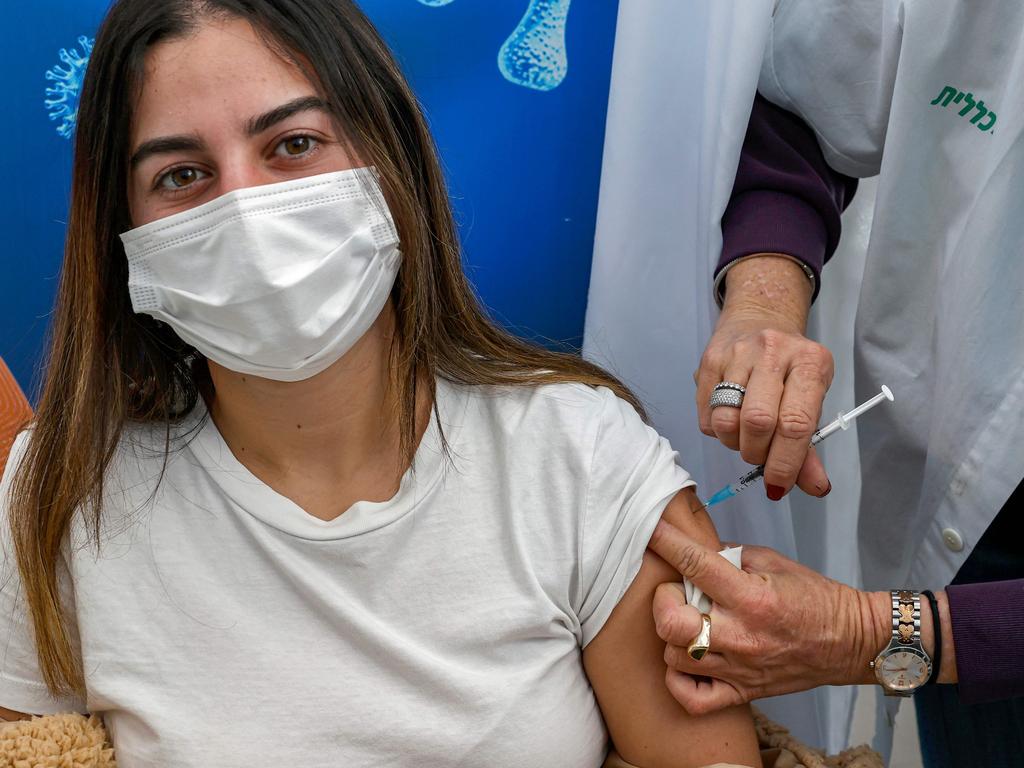
Rare cases of myocarditis (inflammation of the heart muscle) and pericarditis (inflammation of the outer lining of the heart) have been linked to the use of mRNA vaccines in younger males.
Both the Pfizer and Moderna shots use mRNA technology, with Moderna packing a higher dose.
But the FDA said the accumulation of real world data, together with the increasing number of Covid cases, meant that the benefits of a booster in this age group outweighed the risks.
WHO ‘UNCLEAR’ ON THIRD JAB OMICRON BENEFITS
The World Health Organisation said Thursday local time it remained unclear whether additional Covid-19 vaccine doses are needed to protect against the new Omicron variant, and urged wealthy countries to avoid hoarding the jabs.
The UN health agency’s vaccine advisers warned that a rush to stockpile more jabs, especially without clear evidence they are needed, would only exacerbate the already glaringly inequal vaccine access around the globe.
“As we head into whatever the Omicron situation is going to be, there is a risk that the global supply is again going to revert to high-income countries hoarding vaccine to protect (their populations) … in a sense in excess,” WHO vaccines chief Kate O’Brien told reporters.
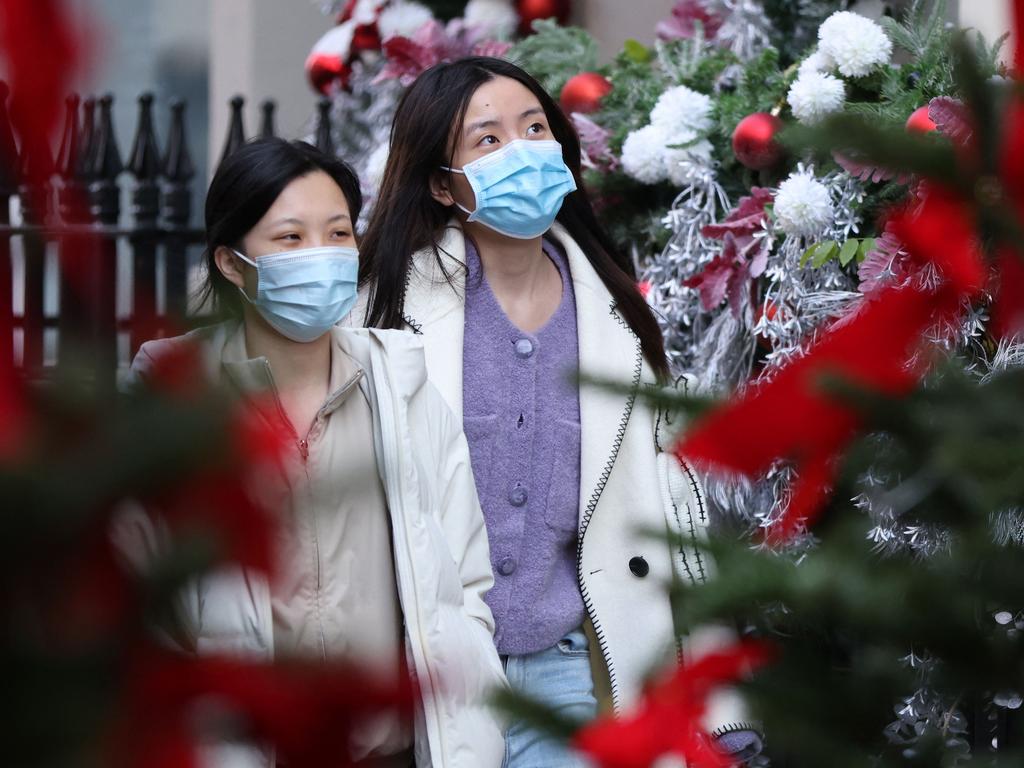
Her comment came after preliminary results published Wednesday indicated that three doses of the Pfizer-BioNTech Covid vaccine were needed to obtain the same level of protection against Omicron as two doses provided against the initial strain.
Ms O’Brien said the WHO was examining the data, and that it may turn out that “additional doses have benefit to provide added protection against Omicron”, but stressed it was still “very early days”.
While there was still little evidence that additional doses were needed to protect against developing severe Covid disease, many vulnerable people and health workers in poorer nations have yet to receive a single dose and remain at great risk.
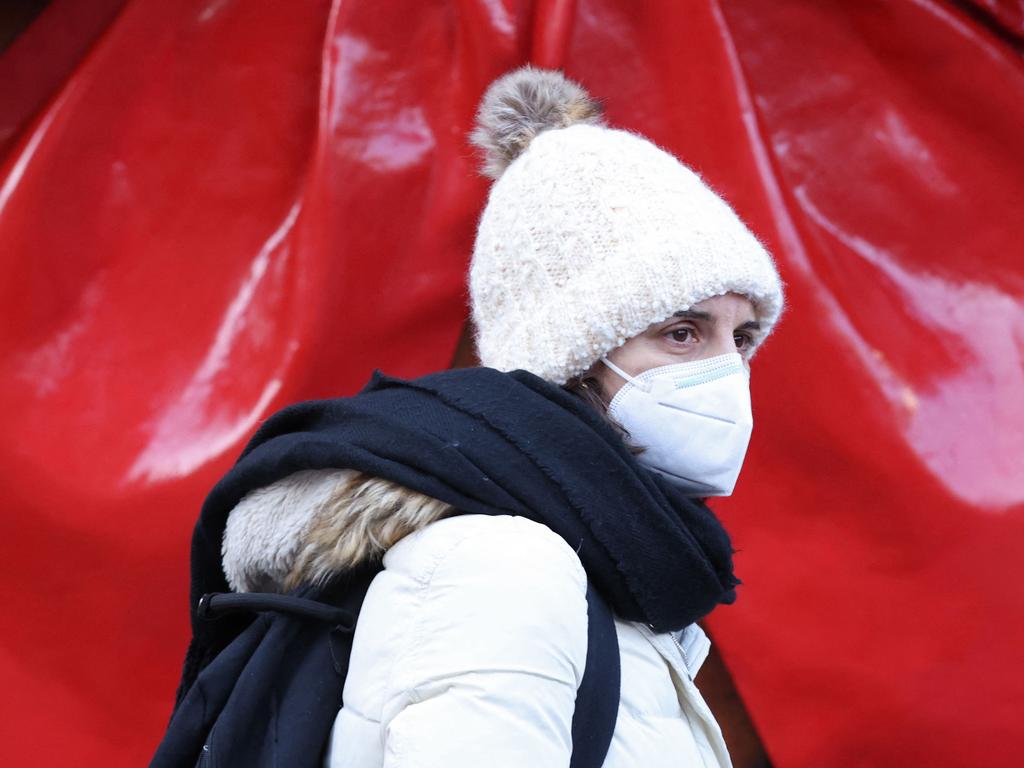
Ms O’Brien pointed out that the world had only just begun addressing the dangerous inequity in vaccine access in the past two months, with more donated doses and large shipments going to underserved countries.
“We have to make sure that it continues,” she said, warning that efforts by wealthy countries to stockpile more jabs for their people would only prolong the pandemic.
“It’s not going to work from an epidemiologic perspective, and it’s not going to work from a transmission perspective, unless we actually have vaccine going to all countries,” she said.
“Where transmission continues … is where the variants are going to come from,” she warned, urging “a much more rational global perspective from countries about what’s actually going to shut down this pandemic.”
THREE JABS NEEDED TO ‘NEUTRALISE’ OMICRON
Pfizer and BioNTech say a third dose of their Covid-19 vaccine neutralised the Omicron variant in lab tests — but warned two doses was significantly less effective at blocking the virus.
Omicron has caused global concern over signs that it can transmit faster than previous strains and fears that its multiple mutations could help it evade immune defences provided by vaccines.
No deaths have yet been associated with the variant.
In preliminary results published on Wednesday local time, Pfizer and BioNTech said their vaccine was “still effective in preventing Covid-19, also against Omicron, if it has been administered three times”.
But they warned that “the Omicron variant is probably not sufficiently neutralised after two doses”.
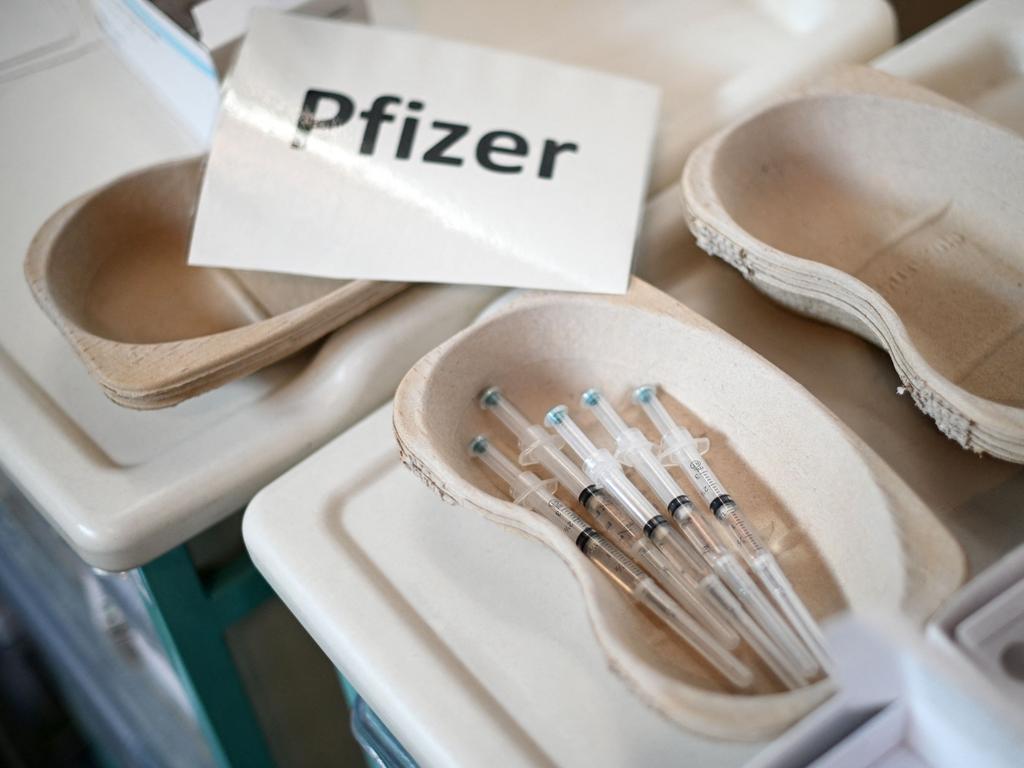
According to the early laboratory research using blood serum from vaccinated people, a booster third dose generated around the same level of antibodies against Omicron as is seen after a second dose with other variants.
Blood samples from people who had received two doses of the current vaccine showed on average a 25-fold reduction in neutralising antibodies compared to the early strain of the virus, the companies said.
But they added that another part of the immune response — from T cells — were probably still effective against the variant, adding that “vaccinated individuals may still be protected against severe forms of the disease”.
Their results have not been peer reviewed.
The companies said that an Omicron-specific version of the anti-coronavirus vaccine, currently in development by BioNTech, would be available by March.
“Although two doses of the vaccine may still offer protection against severe disease caused by the Omicron strain, it’s clear from these preliminary data that protection is improved with a third dose of our vaccine,” Pfizer Chief Executive Albert Bourla said in a statement.
UK RESTRICTIONS BEGIN
British Prime Minister Boris Johnson has triggered his government’s ‘Plan B’ on how to respond to Covid cases, and ordered people to work from home and use vaccine passports to attend nightclubs and soccer matches.
Mr Johnson made the move amid rising cases of the new variant Omicron across the UK, especially in London.
He announced he was toughening the rules as scientists warned the National Health Service could be swamped by 1000 daily patients infected with the new strain.
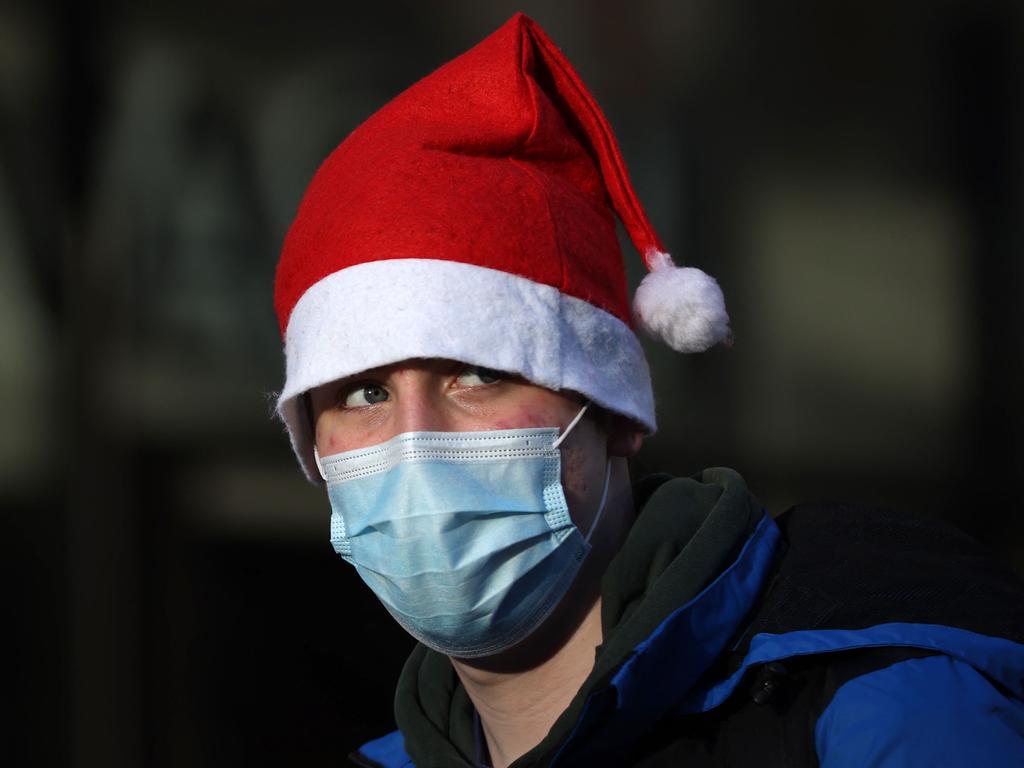
At the press conference the PM announced:
• Compulsory face masks in all indoor settings from Friday
• Working from home except key workers from Monday
• Vaccine passports for crowded venues from next Wednesday.
“I know this will be hard for many people, but by reducing your contacts in the workplace, you will help slow transmission,” Mr Johnson said.
He hinted there could be further changes for people who are unvaccinated.
“I don’t think we can keep going indefinitely with restrictions on peoples way of life just because a substantial number of people have not got vaccinated,” he said.
“We have to have a national conversation about the way forward,” Mr Johnson said.
WHO REVEALS POSITIVE OMICRON NEWS
The World Health Organisation had better news as the health body’s chief revealed that preliminary data indicated the Omicron variant of Covid-19 may more easily reinfect people who have already had the virus or been vaccinated than previous variants, but could also cause milder disease.
“Emerging data from South Africa suggests increased risk of reinfection with Omicron,” Tedros Adhanom Ghebreyesus told reporters, adding that there was “also some evidence that Omicron causes milder disease than Delta.”
While it is likely more transmissible than previous variants, “the preliminary data don’t indicate that this is more severe,” the World Health Organisation’s second-in-command said.
“In fact, if anything, the direction is towards less severity,” WHO emergencies director Michael Ryan said in an interview, insisting though that more research was needed.
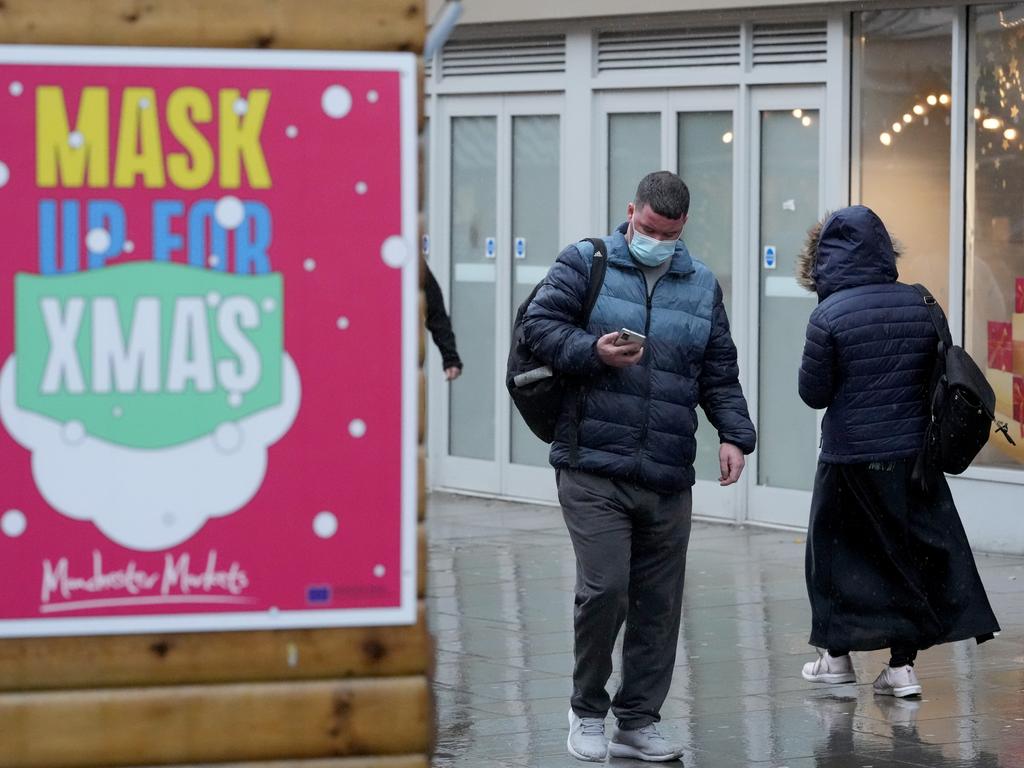
Mr Ryan also said it was “highly unlikely” that Omicron could fully sidestep protections provided by existing Covid vaccines.
“We have highly effective vaccines that have proved effective against all the variants so far, in terms of severe disease and hospitalisation … There’s no reason to expect that it wouldn’t be so” for Omicron, he added, pointing to initial data from South Africa, where the strain was first reported.
However, Mr Ryan acknowledged that it was possible that existing vaccines might prove less effective against Omicron, which counts more than 30 mutations on the spike protein that dots the surface of the coronavirus and allows it to invade cells.
Top US scientist Anthony Fauci echoed the WHO’s view, saying Omicron did not appear worse than prior strains based on early indications – and was possibly milder.
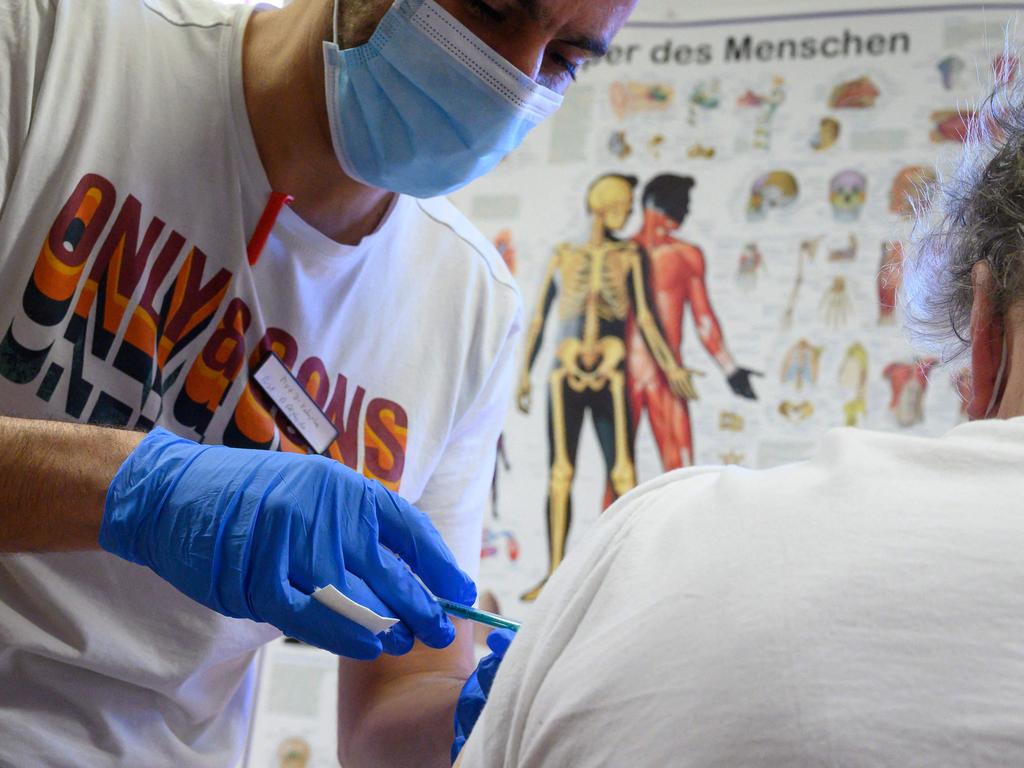
The new variant is “clearly highly transmissible,” very likely more so than Delta, the current dominant global strain, Dr Fauci said.
“It almost certainly is not more severe than Delta,” he said. “There is some suggestion that it might even be less severe.”
But he noted it was important to not over-interpret the data because the populations being followed skewed young and were less likely to become hospitalised. Severe disease can also take weeks to develop.
“Then, as we get more infections throughout the rest of the world, it might take longer to see what’s the level of severity.”
PM PARTIED AFTER EXPOSURE
Finland’s prime minister has been blasted after it was revealed she stayed out dancing, despite knowing she had been exposed to Covid.
Sanna Marin, 36, apologised after a gossip magazine published photos of her attending a Helsinki nightclub on Saturday until almost 4am, hours after the country’s Foreign Minister Pekka Haavisto tested positive for coronavirus.
“My husband and I … had been out to eat, been shopping in town, seen friends and also spent time [enjoying] the evening and night-life,” the Social Democrat leader wrote on Facebook.
She added that she was told by an official that the coronavirus guidelines did not require her to isolate, despite having been in contact with an infected person.
“I should have used better judgment and double-checked the guidance given to me. I am very sorry for not understanding that I needed to do that,” Marin wrote.
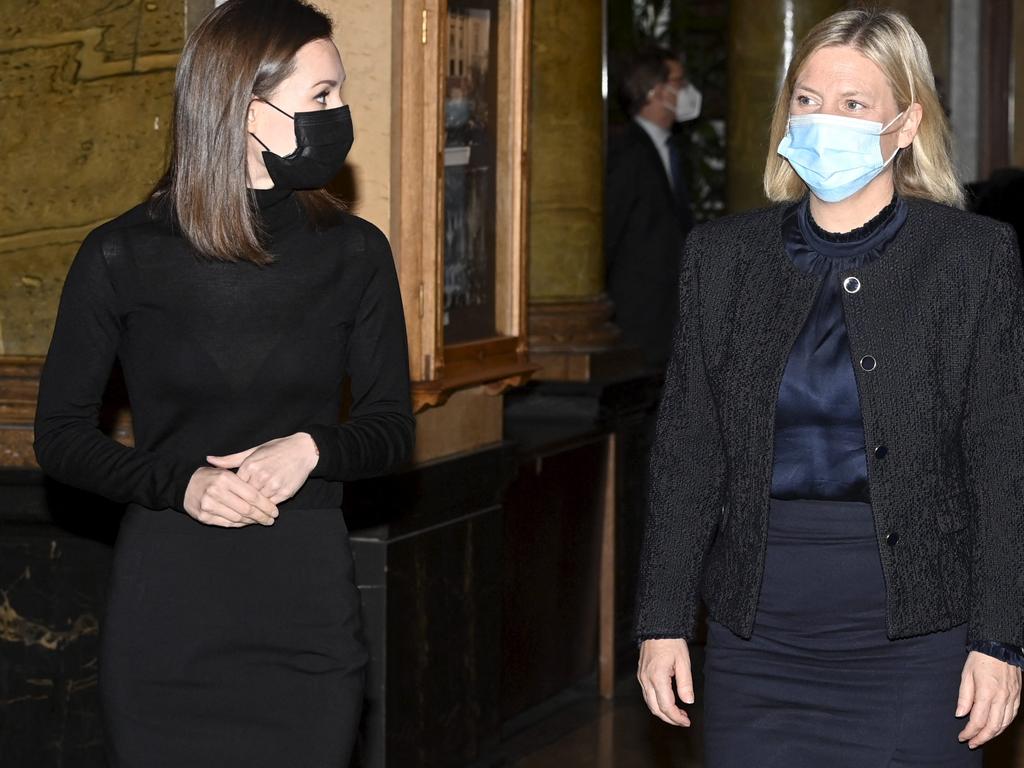
A poll commissioned by TV channel MTV3 found that two-thirds of respondents thought Marin’s night out was a “serious mistake”.
Opposition parties also slammed Marin for potentially breaking official Covid guidelines and for missing a later text message warning her to isolate.
Finance Minister Annika Saarikko from the Centre Party, the ruling coalition partner, stopped short of criticising Marin directly.
However Saarikko told newspaper Helsingin Sanomat that she was “glad I was at home” when she received the text message to isolate, adding that she had cancelled her plans for the next day.
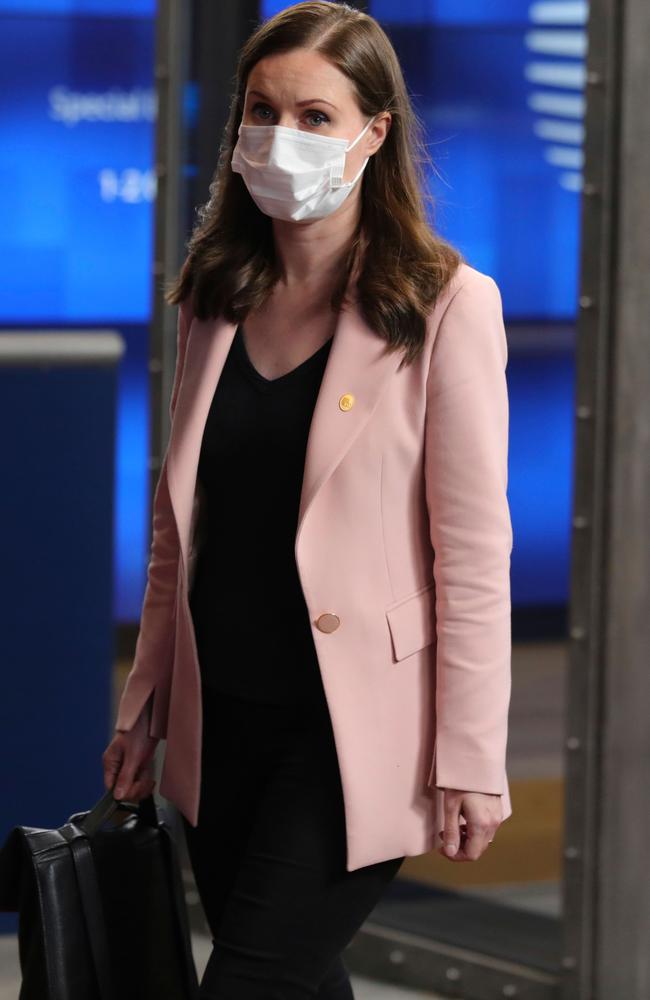
Finland has sustained some of Europe’s lowest incidences of the virus throughout the pandemic, recording more than 196,000 cases and 1,384 deaths in the country of 5.5 million.
However infections are now at an all-time high, with 308 new cases per 100,000 population in the last fortnight. The country has also recorded eight cases of the new Omicron variant.
Seiska reported that Marin was seen in the Butchers nightclub in Helsinki, dancing with friends until nearly four.
Marin, who became the world’s youngest prime minister when appointed in 2019, has previously been the target of criticism over parties at her official residence and social media posts in which she poses with friends or appears to promote fashion accessories.
In October she responded to critics with an Instagram post quoting a Finnish pop song that said: “Hey boom-boom-boomer, put some ice in your hat and cool it”.
“I’m a representative of the younger generation,” she later told broadcaster Yle, “and yes, that’s reflected in the way I do my work and how I live,” Marin said.
THE BIZARRE OMICRON SYMPTOM IN KIDS
Parents are being warned of an “unusual rash” that has been linked to cases of the new Omicron Covid strain in children.
Dr David Lloyd, a GP based in north London, said the rash linked to the new variant had primarily been seen among younger age groups.
Around 15 per cent of children who have been confirmed as having the strain had reportedly developed a rash, he said.
It come as doctors working in South Africa, where the Omicron variant was first detected, said the main symptoms are fatigue, body aches and a headache.
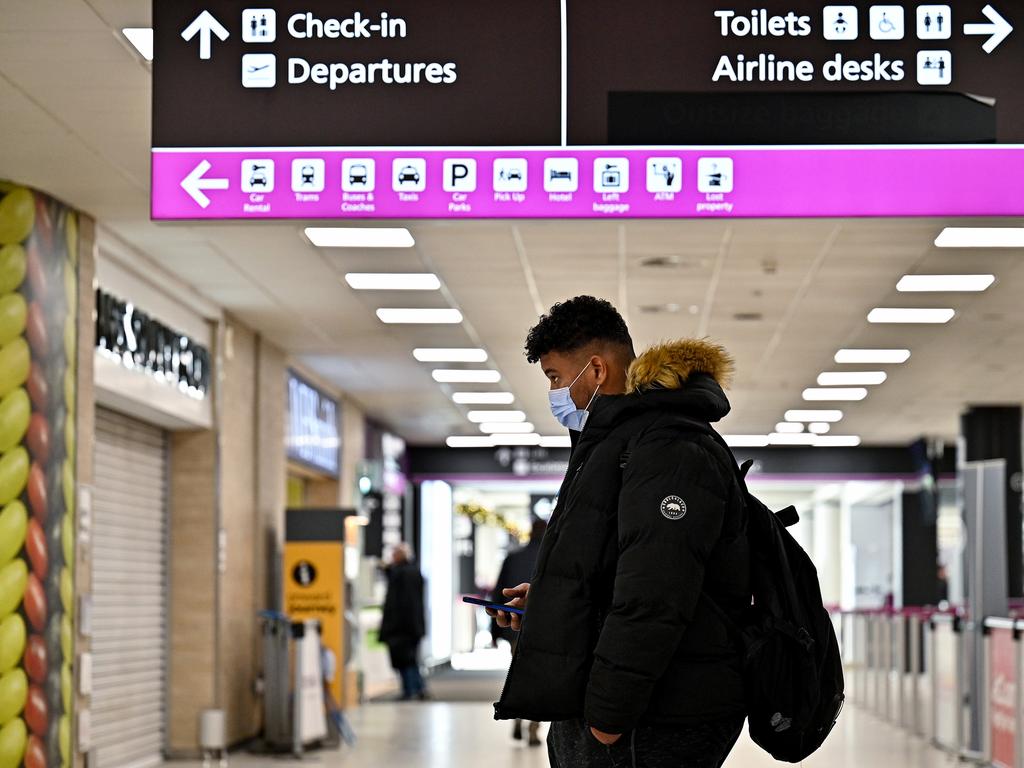
This differs from the three main symptoms of Covid-19, which include a new persistent cough, a high temperature and a loss of taste and smell.
Patients have not been reporting a loss of taste and smell with Omicron, Dr Anglique Coetzee, chair of the South African Medical Association, said.
As a result of the new signs, coronavirus cases in the UK are “being missed” as people are looking for the wrong symptoms, experts have warned.
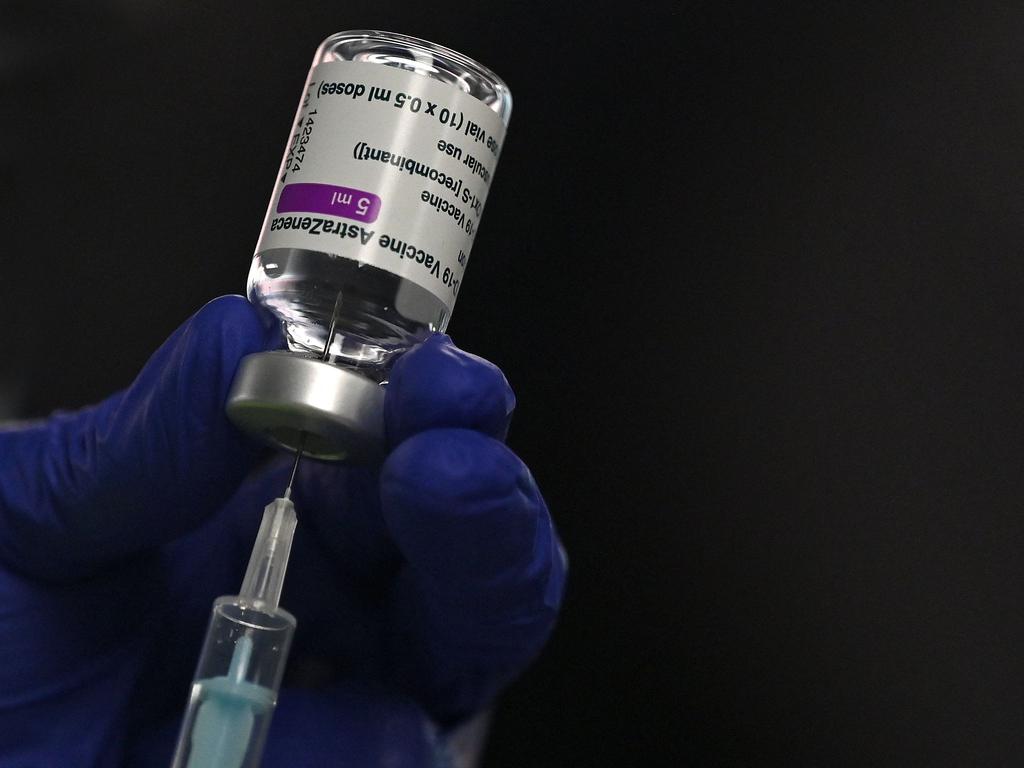
It’s not clear yet whether the Omicron coronavirus variant is more transmissible or causes more or less severe illness than other strains, according to the World Health Organisation (WHO).
“It is yet to be seen how and whether the latest COVID-19 variant of concern Omicron will be more transmissible or more or less severe,“ WHO’s Regional Director for Europe Dr. Hans Kluge said at a press conference on Tuesday local time.
The Omicron variant now accounts for the majority of new coronavirus infections in South Africa where early indications show that cases caused by the variant are generally mild, although health experts have cautioned that it’s early days.
During the briefing, which focused on Europe and Central Asia, Dr Kluge said that while the Omicron variant is “in sight and on the rise,” it is the Delta variant that is the problem in the region right now.
“However we succeed against Delta today is a win over Omicron tomorrow before it eventually surges,” Dr Kluge said.
“We are in the business of stabilising a pandemic and that means not one variant at a time, but all variants at once.”
Originally published as Coronavirus world: US approves booster shots for teens amid Omicron fears





